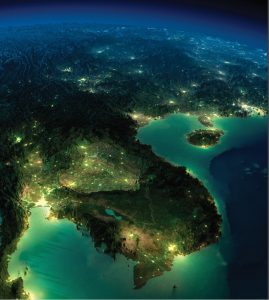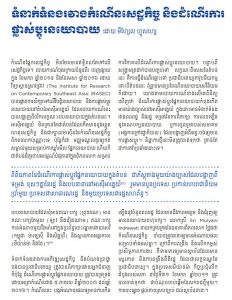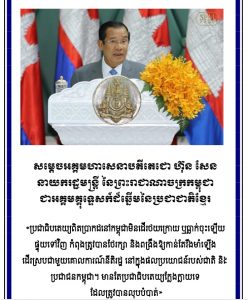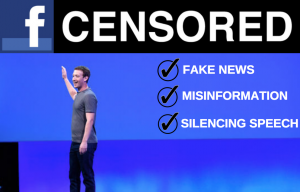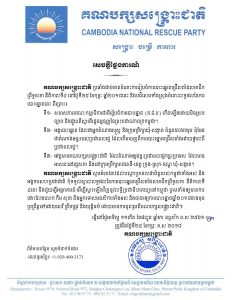
Op-Ed: The CEROC
ការបោះឆ្នោតព្រឹទ្ធសភាថ្ងៃអាទិត្យ ទី២៥ ខែកុម្ភៈ ឆ្នាំ២០១៨ ខាងមុខនេះ៖
ការបោះឆ្នោតព្រឹទ្ធសភាថ្ងៃអាទិត្យនេះដោយគ្មានគណបក្សសង្គ្រោះជាតិចូលរួមដែលមានតំណាង៥០៦២នាក់នោះ គឺជាការបោះឆ្នោតបែបកុម្មុយនីសផ្តាច់ការ។
Senate election this Sunday, February 25, 2018: The Senate election this Sunday without participation of the 5062 voters of the CNRP is the election of communist single-party state.
Sunday’s election for 58 members of the 62-strong Senate will see 123 members of parliament and 11,572 commune councilors vote at 33 polling stations across Cambodia. Two Senate members each are appointed by the king and the National Assembly. But rights groups and opposition politicians say the Senate vote is a farce that shows Hun Sen, who faces a national election in July, is not committed to multi-party democracy. – Reuters
ក្រុមសមាជិកសភាអាស៊ាន ដើម្បីសិទ្ធិមនុស្សម្នាក់ទៀត និងជាសមាជិកសភាហ្វីលីពីន លោក ថម វីឡារីន (Tom Villarin) ថ្លែងថា ការបោះឆ្នោតព្រឹទ្ធសភានេះ គឺគ្មានអ្វីក្រៅតែជាការប៉ុនប៉ងរបស់គណបក្សកាន់អំណាចក្នុងការដណ្ដើមយកការគ្រប់គ្រងស្ថាប័ននេះ តាមរយៈអំពើនៃការលួចប្លន់ផ្នែកនយោបាយយ៉ាងគឃ្លើន។ – RFA Khmer
At the present, Cambodia is at a risky transition by current grip of power either moving towards one party state of communist style such as China, Vietnam and Lao, or towards junta such as Thailand and Burma, or towards terrorism states such as Syria, Iraq, and Afghanistan. The Senate election on this February 25, 2018 is a farce as the key opposition party CNRP has not been participated when the state has marginalized 2062 voters the right to vote or representing about 23 Senate seats. It has enabled the violation over the national Constitution, over the political stance of neutrality of Cambodia’s international relations, and pushing Cambodia into the jaw of China inevitably – Discern of the Analysis on Senate Election 2018

